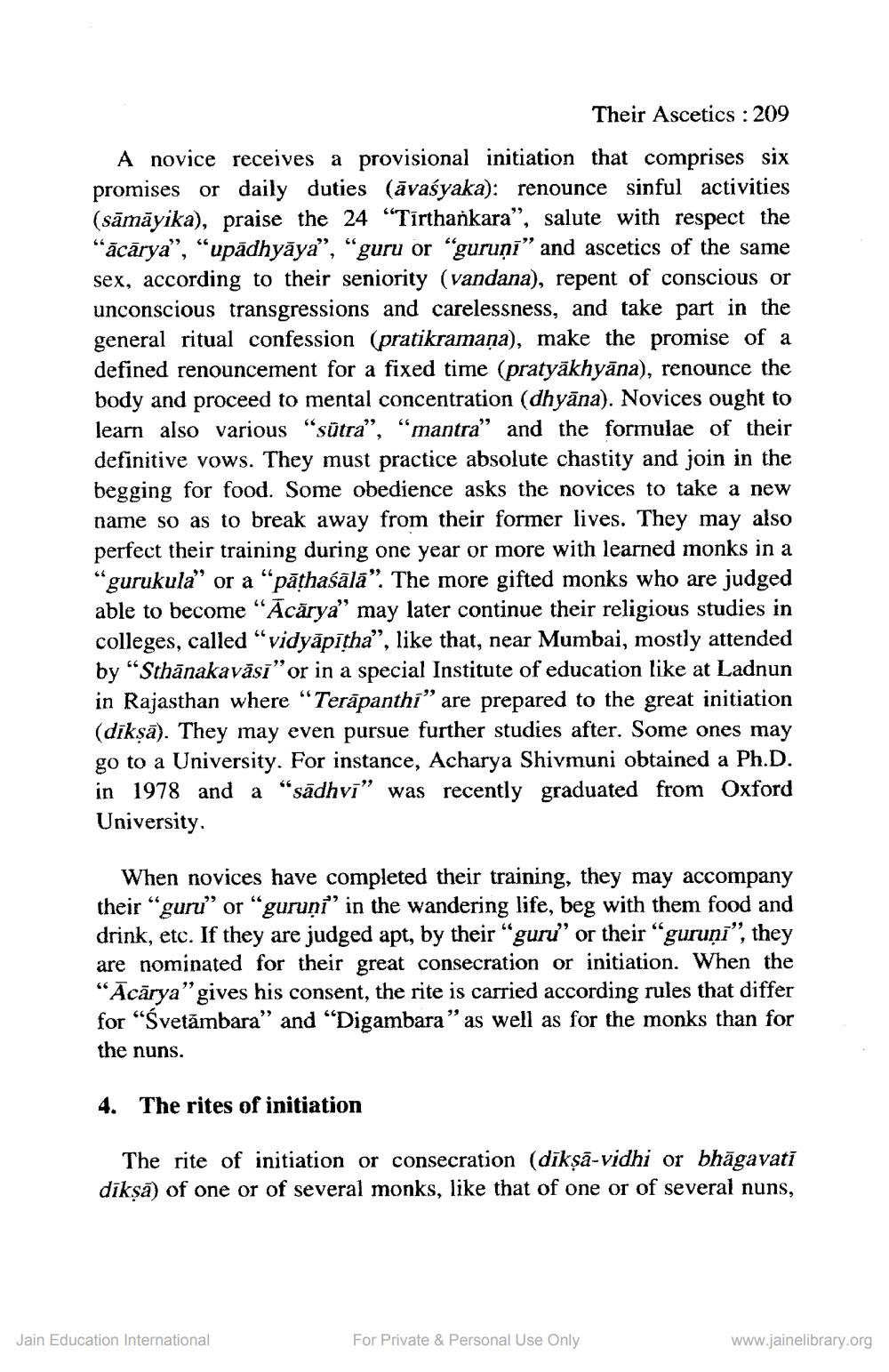________________
Their Ascetics: 209
A novice receives a provisional initiation that comprises six promises or daily duties (avaśyaka): renounce sinful activities (sāmāyika), praise the 24 "Tirthankara", salute with respect the "ācārya", "upadhyāya", "guru or "guruņi" and ascetics of the same sex, according to their seniority (vandana), repent of conscious or unconscious transgressions and carelessness, and take part in the general ritual confession (pratikramaņa), make the promise of a defined renouncement for a fixed time (pratyakhyāna), renounce the body and proceed to mental concentration (dhyāna). Novices ought to learn also various "sutra", "mantra" and the formulae of their definitive vows. They must practice absolute chastity and join in the begging for food. Some obedience asks the novices to take a new name so as to break away from their former lives. They may also perfect their training during one year or more with learned monks in a "gurukula" or a "pathaśālā". The more gifted monks who are judged able to become "Acarya" may later continue their religious studies in colleges, called "vidyapitha", like that, near Mumbai, mostly attended by "Sthānakavāsī" or in a special Institute of education like at Ladnun in Rajasthan where "Terapanthi" are prepared to the great initiation (dīkṣā). They may even pursue further studies after. Some ones may go to a University. For instance, Acharya Shivmuni obtained a Ph.D. in 1978 and a "sādhvi" was recently graduated from Oxford University.
When novices have completed their training, they may accompany their "guru" or "guruni"" in the wandering life, beg with them food and drink, etc. If they are judged apt, by their "guru"" or their "guruni", they are nominated for their great consecration or initiation. When the "Acārya" gives his consent, the rite is carried according rules that differ for "Svetambara" and "Digambara" as well as for the monks than for
the nuns.
4. The rites of initiation
The rite of initiation or consecration (dīkṣā-vidhi or bhāgavatī dikṣā) of one or of several monks, like that of one or of several nuns,
Jain Education International
For Private & Personal Use Only
www.jainelibrary.org




